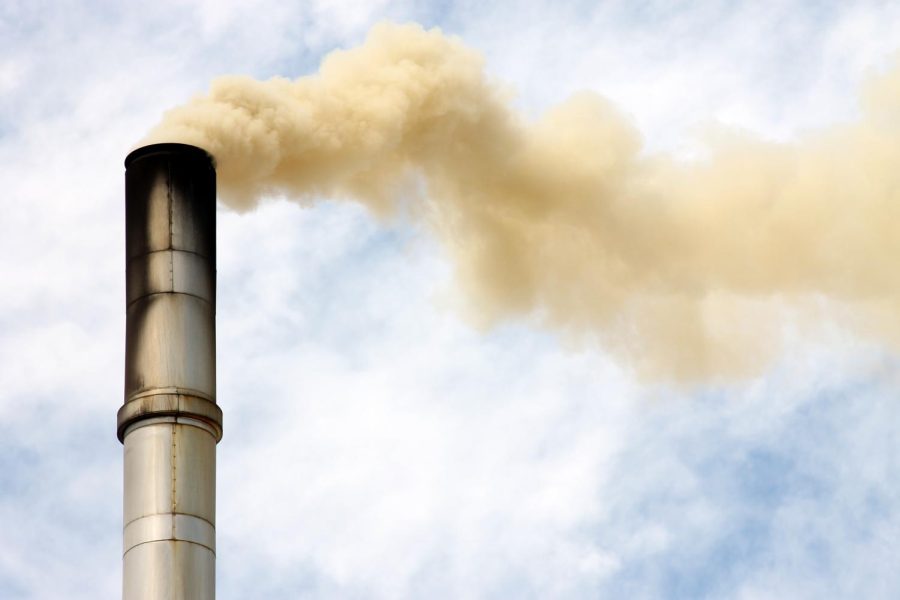The fallacy of individual reponsibility
Smoke from a factory polluting the environment.
They are the calling cards of half-hearted, corporatized, climate crisis solutions: decrease your carbon footprint! Carpool to work! Ask for a paper bag at the store! And, of course: Reduce, Reuse, Recycle! It is your individual civic responsibility to mitigate the looming disaster of climate change. This is the logic underpinning many pleas from civil society, celebrities, politicians, “woke” companies and your liberal friends (and I say that as your liberal friend, dear reader). While I am certainly not here to tell you not to recycle or to buy a new diesel SUV out of spite, I do question the logic and the wisdom of these pleas.
The appeal to individual responsibility deflects responsibility from the collective. If we are told that it is our individual responsibility to wear a mask, to be generous, to pay taxes, to shop consciously, to use less electricity, we, in effect, absolve the collective of any responsibility. Sometimes, this undermining of collective responsibility is a deliberate, nefarious act of industrial propaganda. (In a stroke of pure evil genius, for instance, the oil company BP launched the ad campaign that popularized the “the carbon footprint” concept, successfully misdirecting public attention away from large-scale pollution and towards the marginal pollution of individuals.) More often, and perhaps more tragically, this deflection of the collective is often unconsciously perpetuated by people working hard against the ills of modern society –– a deep internalization of BP-esque propaganda.
Take the example of fair trade –– an issue I care deeply about. It’s easy enough to say, “you should buy products that are ethically sourced.” But that begs the question why aren’t all purchasable goods ethically sourced? The answer, of course, is because we benefit tremendously from goods that were unethically sourced. Your smartphone was unethically sourced. The computer I write this on was likely unethically sourced. All of our electronics probably contain minerals extracted from conflict zones assembled by near-slaves paid less than a dollar a day. We all benefit from this. Exploitation is the foundation upon which the industrial era was built –– and yet we wonder why problems of inequality persist today.
In other words, to condemn someone else for buying unethically sourced goods is to condemn yourself, and, in the process, exonerate the system which implicates us all. The logic of individual responsibility, if taken to its extreme, negates the existence of a collective, replacing it with a series of isolated individuals, operating in their own realms of existence –– their own realms of morality. If only you can prevent forest fires, then you have failed miserably.
Of course that is an absurd proposition. You are not responsible for stopping forest fires. I am not responsible for correcting climate change. Nobody is responsible for solving the global refugee crisis. Yet, when no one is responsible, we all are responsible.
In a society where the individual is valued above all else, and is foundational in our philosophy and law, it may be expedient to appeal to the individual, but that does not mean that it is helpful in the long run. It may be most prudent, given the current state of our individualized culture, to stop the spread of coronavirus by appealing to the individual’s responsibility to wear a mask or get vaccinated. But beyond the present crisis, the individualistic appeals are untenable.
For these individualisms are indeed the root cause of our problems: they constrain the way we think. They make action on profound issues like climate change seem out of reach. Because when our imagination is confined to the realm of individual action, of course meaningful change seems impossible. What is needed, then, is a reorientation in our social imaginings.
We are one spoke in the complex wheel of humanity, but we don’t think that way. We each serve a purpose, but a purpose that is totally meaningless absent any understating of a collective. What is a single spoke, divorced from the rest of a wheel?
Democratic governance is the collective expression of a society. It is messy, but so is society. Rather than directing our anger at a fellow member of society for shopping unethically, or needlessly driving a pick-up truck, or not recycling, we should direct it at our government’s failure to correct that injustice. Climate change, worker exploitation, COVID-19 all require dramatic policy action to solve. Individual responsibility is a convenient, fallacious misdirection offered up by the perpetrators of injustice to distract from the real solution. For the only way that these most complex issues get solved is through the collective democratically demanding bold policy action.








